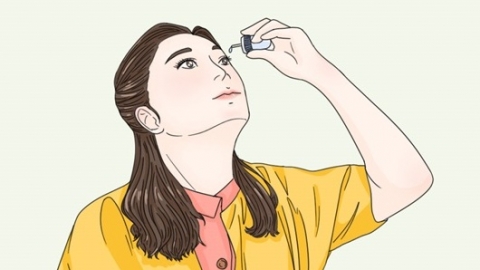How is myodesopsia treated?
Under normal circumstances, floaters may be related to aging, eye strain, myopia, trauma, uveitis, and other factors. Patients can treat the condition by ensuring adequate rest, avoiding excessive eye strain, and receiving medication therapy. It is recommended that patients seek timely medical attention and follow medical advice for treatment. Detailed analysis is as follows:

1. Aging: With advancing age, the vitreous humor inside the eyeball gradually liquefies, forming cloudy substances that cause symptoms of floaters. No specific treatment is required; symptoms can be relieved by ensuring adequate rest, avoiding excessive eye strain, and consuming more vitamin-rich foods.
2. Eye strain: Prolonged staring at electronic devices such as computer screens and mobile phones, as well as poor eye habits, may lead to eye fatigue and subsequently cause floaters. Improving eye habits, ensuring adequate rest, and avoiding prolonged continuous eye use can help. Applying warm compresses and performing eye exercises may also help relieve eye fatigue.
3. Myopia: Individuals with high myopia are more prone to develop floaters because myopia may cause premature liquefaction of the vitreous and thinning of the retina. If symptoms of floaters are severe, wearing appropriate glasses or contact lenses may be considered. Additionally, attention should be given to eye rest and avoiding excessive eye use.
4. Trauma: Injury or impact to the eye may cause vitreous hemorrhage or cloudiness, leading to floaters, which may be accompanied by symptoms such as eye pain, redness, swelling, and vision loss. Patients need timely medical treatment, following the guidance of a physician, using medications such as escin eye drops, iododeoxyuridine peptide eye drops, carbomer eye drops, etc.
5. Uveitis: Uveitis may be caused by bacterial, viral, or autoimmune reactions, leading to inflammation and edema of intraocular tissues. Cell debris and protein deposits during the inflammatory process accumulate in the vitreous body, causing the appearance of floaters. Symptoms may include eye pain, photophobia, tearing, and vision loss. Patients are advised to use medications such as diclofenac sodium sustained-release tablets, dexamethasone acetate tablets, indomethacin sustained-release capsules, etc., under the guidance of a doctor to alleviate symptoms.
In daily life, maintaining good habits and ocular hygiene, avoiding excessive eye strain and eye fatigue, is important. If symptoms of floaters persist or worsen or new symptoms appear, timely medical consultation and appropriate treatment measures are recommended.





